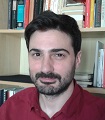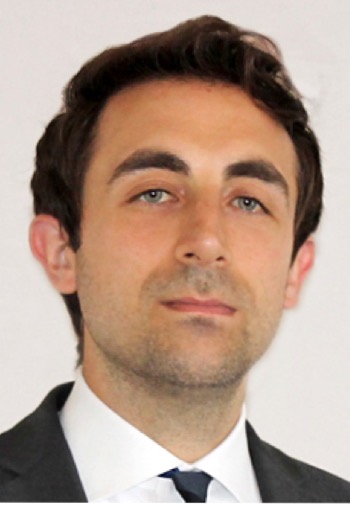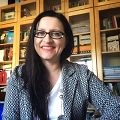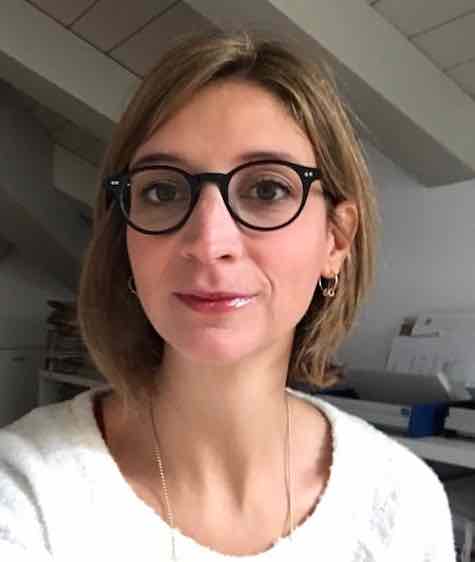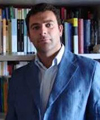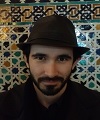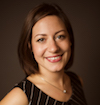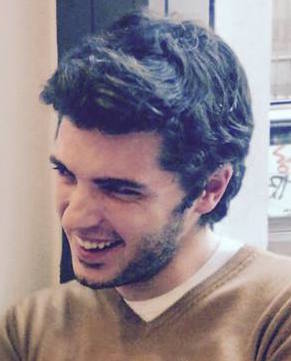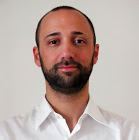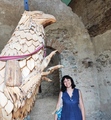Studying at the University of Verona
Here you can find information on the organisational aspects of the Programme, lecture timetables, learning activities and useful contact details for your time at the University, from enrolment to graduation.
Academic calendar
The academic calendar shows the deadlines and scheduled events that are relevant to students, teaching and technical-administrative staff of the University. Public holidays and University closures are also indicated. The academic year normally begins on 1 October each year and ends on 30 September of the following year.
Course calendar
The Academic Calendar sets out the degree programme lecture and exam timetables, as well as the relevant university closure dates..
| Period | From | To |
|---|---|---|
| I semestre (Lingue e letterature straniere) | Sep 30, 2019 | Jan 11, 2020 |
| Annuale (Lingue e letterature straniere) | Sep 30, 2019 | May 30, 2020 |
| II semestre (Lingue e letterature straniere) | Feb 17, 2020 | May 30, 2020 |
| Session | From | To |
|---|---|---|
| ESAMI LINGUE - sessione invernale | Jan 13, 2020 | Feb 15, 2020 |
| ESAMI LINGUE - sessione estiva | Jun 3, 2020 | Jul 25, 2020 |
| ESAMI LINGUE - sessione autunnale | Aug 24, 2020 | Sep 19, 2020 |
| Session | From | To |
|---|---|---|
| LAUREE LINGUE - sessione autunnale (a.a. 2018/19) | Nov 4, 2019 | Nov 9, 2019 |
| LAUREE LINGUE - sessione straordinaria (a.a. 2018/19) | Mar 30, 2020 | Apr 4, 2020 |
| LAUREE LINGUE - sessione estiva (a.a. 2019/20) | Jul 6, 2020 | Jul 11, 2020 |
| LAUREE LINGUE - sessione autunnale (a.a. 2019/20) | Nov 2, 2020 | Nov 7, 2020 |
| LAUREE LINGUE - sessione straordinaria (a.a. 2019/20) | Apr 7, 2021 | Apr 13, 2021 |
| Period | From | To |
|---|---|---|
| Festa Ognissanti (Lingue) | Nov 1, 2019 | Nov 1, 2019 |
| Sospensione delle lezioni | Nov 2, 2019 | Nov 2, 2019 |
| Vacanze di Natale (Lingue) | Dec 23, 2019 | Jan 6, 2020 |
| Vacanze di Pasqua (Lingue) | Apr 10, 2020 | Apr 14, 2020 |
| Festa della Liberazione (Lingue) | Apr 25, 2020 | Apr 25, 2020 |
| Festa del Lavoro (Lingue) | May 1, 2020 | May 1, 2020 |
| Sospensione delle lezioni | May 2, 2020 | May 2, 2020 |
| Festa del Santo Patrono (Lingue) | May 21, 2020 | May 21, 2020 |
| Sospensione delle lezioni | May 22, 2020 | May 23, 2020 |
| Festa della Repubblica (Lingue) | Jun 2, 2020 | Jun 2, 2020 |
| Vacanze estive (Lingue) | Aug 10, 2020 | Aug 15, 2020 |
Exam calendar
Exam dates and rounds are managed by the relevant Foreign Languages and Literatures Teaching and Student Services Unit.
To view all the exam sessions available, please use the Exam dashboard on ESSE3.
If you forgot your login details or have problems logging in, please contact the relevant IT HelpDesk, or check the login details recovery web page.
Should you have any doubts or questions, please check the Enrollment FAQs
Academic staff
 daniele.beltrame@univr.it
daniele.beltrame@univr.it
 bernardo.calabrese@univr.it
bernardo.calabrese@univr.it
 silvia.cavalieri@univr.it
silvia.cavalieri@univr.it
 riccardo.cella@univr.it
riccardo.cella@univr.it
 elisa.dallarosa@univr.it
elisa.dallarosa@univr.it
 katiuscia.darici@univr.it
katiuscia.darici@univr.it
 sara.dattoma@univr.it
sara.dattoma@univr.it
 jacopo.galavotti@univr.it
jacopo.galavotti@univr.it
 diegogabriel.krivochen@univr.it
diegogabriel.krivochen@univr.it
 stefania.montemezzo@univr.it
stefania.montemezzo@univr.it
 chunye.niu@univr.it
chunye.niu@univr.it
 simone.pregnolato@univr.it
simone.pregnolato@univr.it
 fabioantonio.scrignoli@univr.it
fabioantonio.scrignoli@univr.it
 tania.triberio@univr.it
tania.triberio@univr.it
 sonia.trovato@univr.it
sonia.trovato@univr.it
 francesco.zuin@univr.it
francesco.zuin@univr.it
Study Plan
The Study Plan includes all modules, teaching and learning activities that each student will need to undertake during their time at the University.
Please select your Study Plan based on your enrollment year.
1° Year
| Modules | Credits | TAF | SSD |
|---|
1st foreign language2nd foreign language1st foreign literature and cultureGerman literature and culture 1
2nd foreign literature and cultureGerman literature and culture 1
2° Year activated in the A.Y. 2020/2021
| Modules | Credits | TAF | SSD |
|---|
1st foreign language2nd foreign language1st foreign literature and culture or a related courseEnglish literature and culture 2
French literature and culture 2
German literature and culture 2
Spanish literature and culture 2
2nd foreign literature and culture or a related courseEnglish literature and culture 2
French literature and culture 2
German literature and culture 2
Spanish literature and culture 2
Italian literature and culture
Geography of communication and international trade
Modern and Contemporary Economic History
Theory and Techniques of communication
3° Year activated in the A.Y. 2021/2022
| Modules | Credits | TAF | SSD |
|---|
1st foreign language2nd foreign languagePrinciples of international marketing
| Modules | Credits | TAF | SSD |
|---|
1st foreign language2nd foreign language1st foreign literature and cultureGerman literature and culture 1
2nd foreign literature and cultureGerman literature and culture 1
| Modules | Credits | TAF | SSD |
|---|
1st foreign language2nd foreign language1st foreign literature and culture or a related courseEnglish literature and culture 2
French literature and culture 2
German literature and culture 2
Spanish literature and culture 2
2nd foreign literature and culture or a related courseEnglish literature and culture 2
French literature and culture 2
German literature and culture 2
Spanish literature and culture 2
Italian literature and culture
Geography of communication and international trade
Modern and Contemporary Economic History
Theory and Techniques of communication
| Modules | Credits | TAF | SSD |
|---|
1st foreign language2nd foreign languagePrinciples of international marketing
| Modules | Credits | TAF | SSD |
|---|
Legend | Type of training activity (TTA)
TAF (Type of Educational Activity) All courses and activities are classified into different types of educational activities, indicated by a letter.
German literature and culture 1 [Cognomi A-L] (2019/2020)
Teaching code
4S002904
Teacher
Coordinator
Credits
6
Language
Italian
Scientific Disciplinary Sector (SSD)
L-LIN/13 - GERMAN LITERATURE
Period
II semestre (Lingue e letterature straniere) dal Feb 17, 2020 al May 30, 2020.
Learning outcomes
The course is meant to deeply examine the major trends of the twentieth-century German Literature (Naturalismus, Symbolismus, Ästhetizismus, Expressionismus, Neue Sachlichkeit, BRD-Literatur, DDR-Literatur, Post-Wende-Literatur, Kanakliteratur), whose aesthetical features and most significant authors will be both accurately described. Biographical informations about the authors, historical and political contexts, artistic and literary querelles, editorial and publishing aspects will also be provided throughout the analysis of single works and lyrics. The course will be divided into three sections: Fin de Siécle / Early 1900 (1890-1919) and Weimar Republic / End of World War II (1919-1945); “Other” German Language Literatures Austrian Literature, Hapsburg Bohemia (focus on Rilke and Kafka) and Swiss Literature; German and Austrian Literature after 1945 until the post Fall of the Wall (1945-2010 ca.). The bibliography will deal with the three main literary genres – poetry, prose and drama – and will proceed according with the diachronic examination of the German Literary History.
Program
PROGRAMMA
Il Corso è strutturato in un unico modulo (didattica frontale); le opere in programma sono introdotte in lingua italiana e successivamente analizzate nelle loro parti più significative a partire dall’originale tedesco.
Bibliografia
- Thomas Mann, Der Tod in Venedig, Frankfurt am Main, Fischer, 1992.
- Franz Kafka, Die Verwandlung, Stuttgart, Reclam, 2013. Reclam XL – Text und Kontext.
- Hugo von Hofmannsthal, Der Schwierige, Frankfurt am Main, Fischer, 1994.
- Arthur Schnitzler, Fräulein Else, Stuttgart, Reclam, 2001.
- Bertolt Brecht, Die Dreigroschenoper, Frankfurt am Main, Suhrkamp, 2009.
- Peter Weiss, Die Ermittlung, Frankfurt am Main, Suhrkamp, 2010.
- Anton Reininger, La letteratura tedesca dal Settecento ai nostri giorni, Torino, Rosenberg & Sellier, 2005.
- Una scelta di poesie sarà messa a disposizione in forma di fotocopie.
Gli studenti non frequentanti avranno la possibilità di concordare con il docente un programma che, lasciando da parte la scelta di poesie, prevede la lettura di un saggio o articolo scritto per ciascuna delle opere letterarie in programma.
| Author | Title | Publishing house | Year | ISBN | Notes |
|---|---|---|---|---|---|
| Hugo von Hofmannsthal | Der Schwierige | 1994 | |||
| Thomas Mann | Der Tod in Venedig | 1992 | |||
| Bertolt Brecht | Die Dreigroschenoper | 2009 | |||
| Peter Weiss | Die Ermittlung | 2010 | |||
| Franz Kafka | Die Verwandlung | 2013 | |||
| Arthur Schnitzler | Fräulein Else | 2001 | |||
| Anton Reininger | La letteratura tedesca dal Settecento ai nostri giorni | 2005 |
Examination Methods
The final oral exam is in Italian. It is aimed at testing students’ knowledge of all topics dealt with during the course and in particular at testing
- The depth and breadth of students’ knowledge
- Students’ ability to analyse and understand literary texts
- Students’ ability to discuss and connect different topics in a literary and intersemiotic perspective
- Students’ speaking ability in German
The final evaluation is expressed in marks out of thirty.
ERASMUS students are kindly requested to get in touch with the Professor in order to make arrangements.
Type D and Type F activities
| years | Modules | TAF | Teacher |
|---|---|---|---|
| 1° | Seminario metodologico di analisi del testo letterario [Gruppo 1] | D |
Andrea Zinato
|
| 1° | Seminario metodologico di analisi del testo letterario [Gruppo 2] | D |
Andrea Zinato
|
| years | Modules | TAF | Teacher |
|---|---|---|---|
| 1° 2° | History of English Literature (F-O) [Cognomi A-E] | D |
Annalisa Pes
(Coordinator)
|
| 1° 2° | History of English Literature (F-O) [Cognomi F-O] | D |
Annalisa Pes
(Coordinator)
|
| 1° 2° | History of English Literature (F-O) [Cognomi P-Z] | D |
Annalisa Pes
|
To discover all the teaching activities accredited by the foreign teaching college click here
Career prospects
Module/Programme news
News for students
There you will find information, resources and services useful during your time at the University (Student’s exam record, your study plan on ESSE3, Distance Learning courses, university email account, office forms, administrative procedures, etc.). You can log into MyUnivr with your GIA login details: only in this way will you be able to receive notification of all the notices from your teachers and your secretariat via email and soon also via the Univr app.
Student login and resources
Gestione carriere
Assegnazione tutore
Attività accreditate D/F
Calendario didattico dettagliato
Cambio lingua curriculare
Competenze informatiche
Competenze linguistiche (prima e seconda lingua)
Competenze linguistiche in triennale (terza lingua CFU F)
Compilazione del piano didattico
Corso di Lingua portoghese
Erasmus+ e altre esperienze all'estero
Linguistic training CLA
Presentazione dei corsi di studio e Open day
Graduation
List of theses and work experience proposals
| Stage | Research area |
|---|---|
| PROGETTO MAMBRINO Stage per bibliografia | Various topics |
Saperi minimi
Stage e tirocini
Nel piano didattico della laurea triennale in Lingue per il turismo e il commercio internazionale (L12) è previsto un periodo di stage obbligatorio (CFU 6) in organizzazioni imprenditoriali.
Le attività di stage sono finalizzate a far acquisire allo studente una conoscenza diretta in settori di particolare interesse per l’inserimento nel mondo del lavoro e per l’acquisizione di abilità professionali specifiche.
Le attività di stage sono svolte sotto la diretta responsabilità di un singolo docente presso studi professionali, enti della pubblica amministrazione, aziende accreditate dall’Ateneo veronese.
I crediti maturati in seguito ad attività di stage saranno attribuiti secondo quanto disposto nel dettaglio dal “Regolamento d’Ateneo per il riconoscimento dei crediti maturati negli stage universitari” vigente.
- Tutte le informazioni in merito agli stage per futuri studenti sono disponibili alla pagina Stage e tirocini.
- Tutte le informazioni in merito agli stage per studenti iscritti sono pubblicate in MyUnivr - come fare per - stage e tirocini.
- Tutte le informazioni in merito agli stage per le aziende sono disponili alla pagina Stage e tirocini per azienze.
Ulteriori informazioni al seguente link https://www.univr.it/it/i-nostri-servizi/gestione-carriere-studenti-lingue-e-letterature-straniere/stage-e-tirocini-lingue-e-letterature-straniere

 +39 045802 8409
+39 045802 8409

